Feast of the ancient Greeks
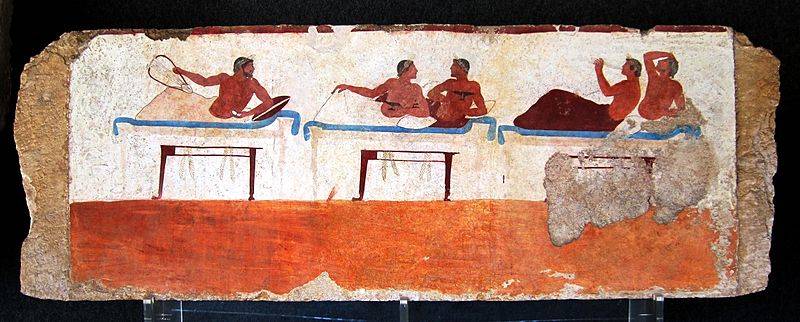
and a well-made table with blue legs;
He wore a vessel of bronze and a bow,
to flavor the drink
with honey and barley flour cakes.
Homer "Iliad"
The kitchen and story. Today we will get acquainted with what and how the founders of ancient Greek culture, the ancient Greeks, ate. We have already talked about olives and oil from them. Today we will talk about everything else.
Let's start with the fact that the Greeks were mostly healthy people, and all because they ate a little, but often, that is, as recommended, at least three to four times a day.
Breakfast was early (before the heat of the day hit, there was a lot to do!) and usually consisted of barley bread dipped in wine or olive oil, along with figs and olives. In richer houses, pancakes were served, which were called tagenii or tagenity, mixed from wheat flour on yogurt with the addition of honey.
It was customary to have a snack around noon, but this "early lunch" was not considered lunch. Then around five (just like the British) you could have a light snack again. Such an “extra light lunch” was taken in the late afternoon.
But the most important thing was dinner. The men returned home “from work” (often just from chatting in the agora), and the women, who had been busy with the housework all day, fed them and only after that they ate themselves, and also separately from the men.
Ate sitting on chairs. The tables were high for ordinary dinners and low for feasts, since the Greeks did not sit on them, but reclined. By the XNUMXth century BC, round tables began to be made, often with legs shaped like animal paws. The dishes were earthenware, but always painted and very beautiful. Of the cutlery, only a knife and a spoon were known, and it was customary to eat with your hands.
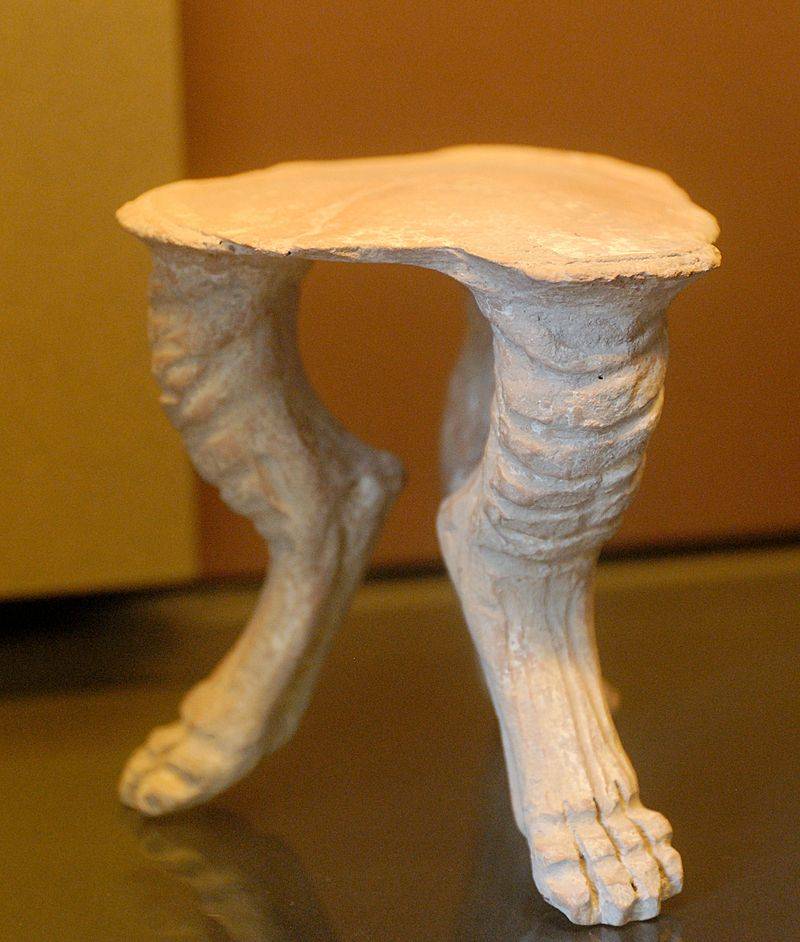
An important role in the lives of men was played by symposiums, which translates as a “banquet”, or, literally, “a gathering of drinkers”. It was divided into two parts: the first was devoted to food, the second - to the use of alcohol. Since the main goal was not food at all - snacks were light: roasted chestnuts, beans, salted olives, goat cheese and honey cakes.
A symposiarch (usually the head of the house) was preliminarily chosen, who indicated in what proportion wine and water would be mixed at this feast, since the Greeks did not drink undiluted wine! Serving slaves had to strictly comply with the specified, for which they had at their disposal a large number of appropriate measuring utensils. They mixed wine and water in proportions of 1 to 2, 2 to 3, 1 to 3, so it was not easy for the Greeks to get drunk “up to the position”
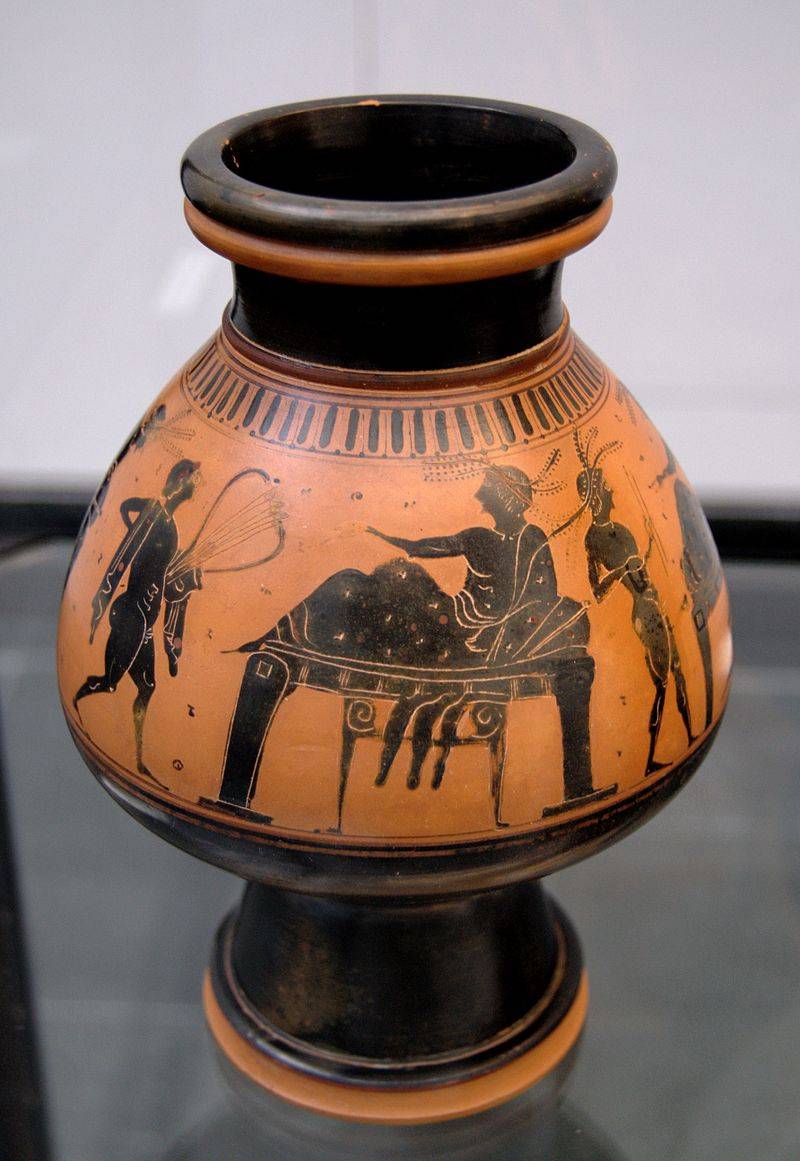
For the second part, dancers, acrobats, musicians, for example, flutists, were invited to amuse the guests. Women at such a feast could only be present as hetaerae. The symposiums were also famous for their amusing games. One of them, and very popular, was “kottab”, the essence of which was that the participants splashed wine from their kiliks. To do this, it was necessary to unwind it by one of the handles on the finger so that the drops of wine hit the target!
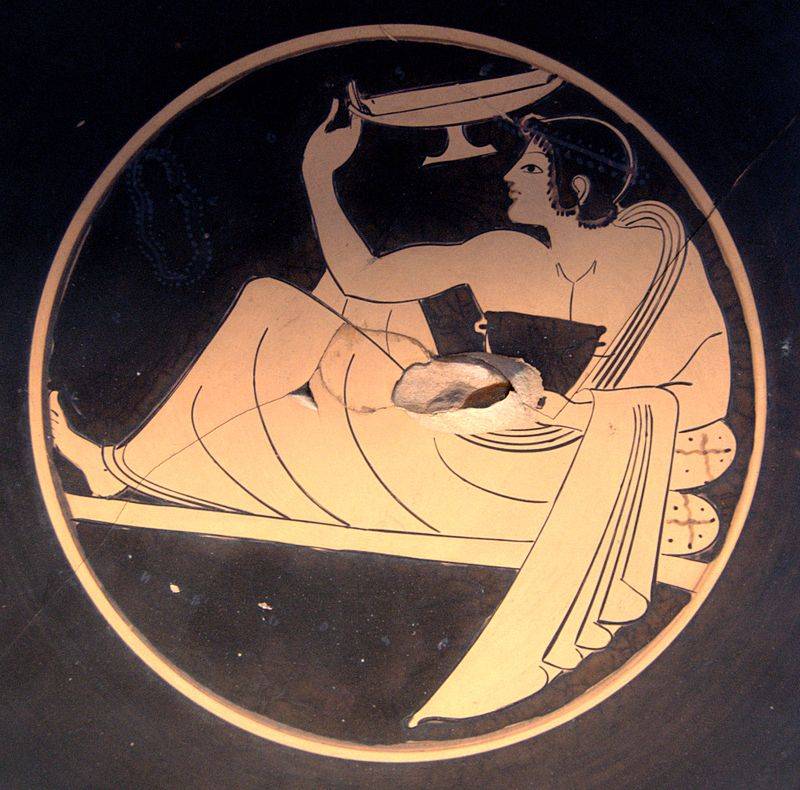
In Sparta, there was a custom of joint dinners of male warriors - sissitia, but they didn’t get drunk there, but simply ate, since it was believed that a joint meal brings together. Each Spartan contributed his share of products for this. I could not do this - I did not participate in the dinners and lost the rights of the Spartiate.
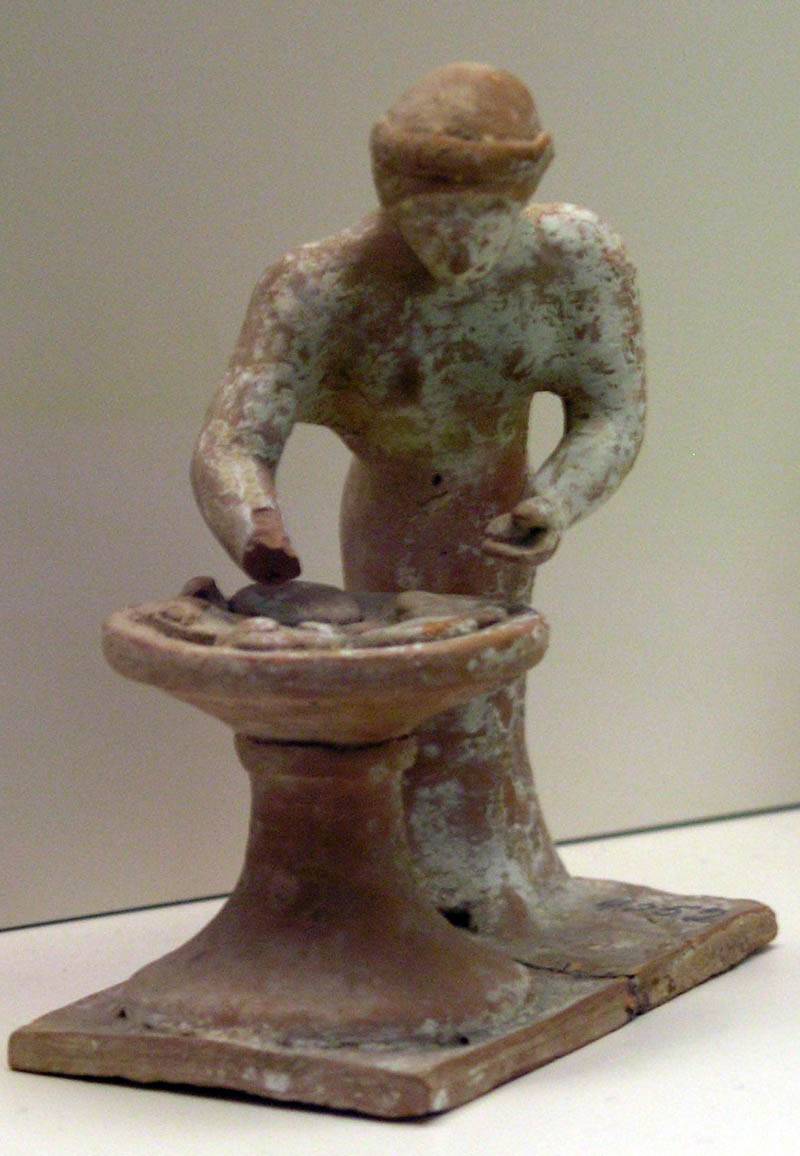
Today it is believed that the main source of energy for humans are cereals. Therefore, cereals from them must be eaten. And this was exactly the case with the Greeks: grains of wheat and barley were their main foodstuffs. But bread was always served with a side dish, whether it was fish, meat, fruits or vegetables.
Wheat grains were first softened by soaking them in water and then boiled to make porridge or ground into flour. Unlike the Egyptians, the Greeks already knew leaven and baked both unleavened cakes (to which cheese and honey were added) and yeast bread. Naturally, the rich Greeks ate wheat bread (for the sake of which the Greek colonies were brought to the Northern Black Sea coast), and the poor ate coarse barley bread.
Ever since the Paleolithic era, lentils have been growing in Greece, to which chickpeas were added in ancient times, most often mentioned in classical Greek literature. Lentil soup was a typical dish of a working Greek, such as an artisan potter. Peas, on the other hand, are rarely mentioned, but Hesiod and Theophrastus report that the Greeks also ate them. By the way, simple peas, boiled to a puree state, seasoned with real olive oil, are indeed quite a dietary and tasty dish (Author's note).
In ancient Greece, fruits and vegetables were consumed in large quantities, and the Greeks themselves ate much less meat at that time than they do today.
Vegetables were eaten boiled or mashed, seasoned with olive oil, vinegar, aromatic herbs or fish sauce. Aristophanes, for example, in his comedy portrayed Hercules as a glutton who loves mashed beans - apparently boiled beans or peas with olive oil. Well, the poor had to eat acorns. And of course, both poor and rich Greeks constantly ate canned (usually salted) olives.
The traditional foods of the warriors were foods such as cheese, onions and garlic. In one of Aristophanes' plays, the choir, celebrating the end of the war, sings: “Oh! joy, joy! No helmet, no cheese, no onions!”
In addition to fresh, dried fruits were also served as a dessert: figs, raisins and, of course, nuts.
As for meat, the main source of meat food for the townspeople was the meat of… sacrificial animals.
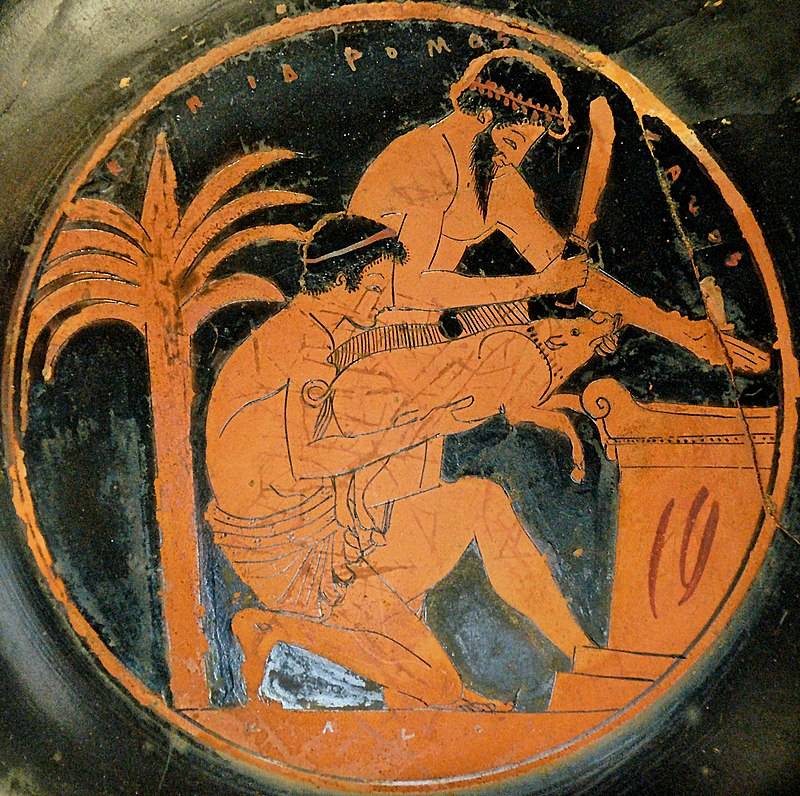
Fresh meat, therefore, was most often eaten after sacrifices, as if sharing a meal with the gods (“they have the smoke of burnt tripe, and the meat is for people”). But sausage was also widely used, which is not surprising, since dried and smoked sausages were more easily preserved in the hot climate of Greece.
But most of all I love food.
Belly and scar of castrated beasts,
And I love a fragrant pig,
baked in the oven.
Hipparchus (c. 190-120 BC)
By the way, in the time of Aristophanes, a piglet cost three drachmas, which was equal to three days' wages of an ordinary civil servant. The Spartans also cooked their famous "black soup" from pork legs, blood, and cuttlefish juice. Being engaged in hunting and setting snares, the Greeks got a lot of game, so that none of them really lived in poverty. It was enough to go outside the city to catch the same quails or blackbirds ... By the way, quails, mallards, pheasants, larks and pigeons were domesticated in the era of classical Greece and were sold in the markets. The Greeks also bred chickens and geese, as even Homer writes about.
Naturally, living by the sea, the Greeks also consumed a lot of seafood, from fresh fish to squid, octopus and shellfish. In classical Athens, for example, sea eels and sea bass were considered a delicacy, but the small fish that we use for sprats was a very cheap and easily accessible product.
The Greeks did not like cow's milk, and goat's milk was considered a barbaric drink. However, they liked such dairy products as yogurt, cottage cheese and, of course, various cheeses, both soft and hard. Moreover, they ate cheese separately, with bread and wine, and also with honey and vegetables.
Of the spices, the Greeks knew black peppercorns and bitter capsicum, in addition, dill, coriander, anise, cumin, fennel, rue, and also celery and its seeds were common and used in cooking.
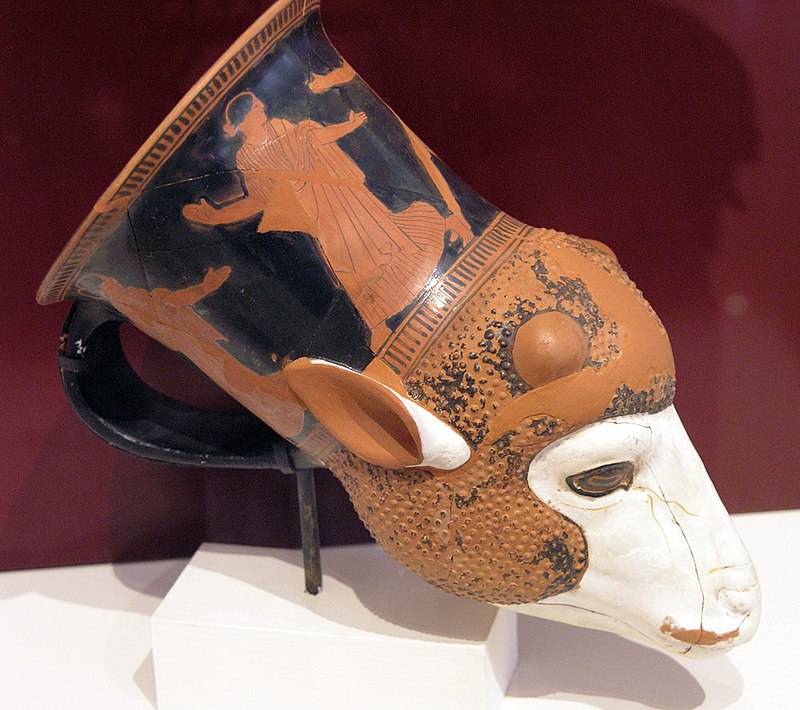
The favorite drink of the Greeks was ... pure spring water.
As for wine, they made red, rosé and white grape wines. The best wines came from Thassos, Lesbos and Chios. Wine from Crete was also valued, but came later. Wine was considered medicine. In this case, honey, mint and thyme were added to it. Sweet wine was made in Thassos, and it was very similar, judging by the descriptions, to port wine. Amusing myths were associated with the use of wine: that, for example, wine from Arcadia and Gerai makes men stupid and women fertile, but wine from Achaia causes an abortion.
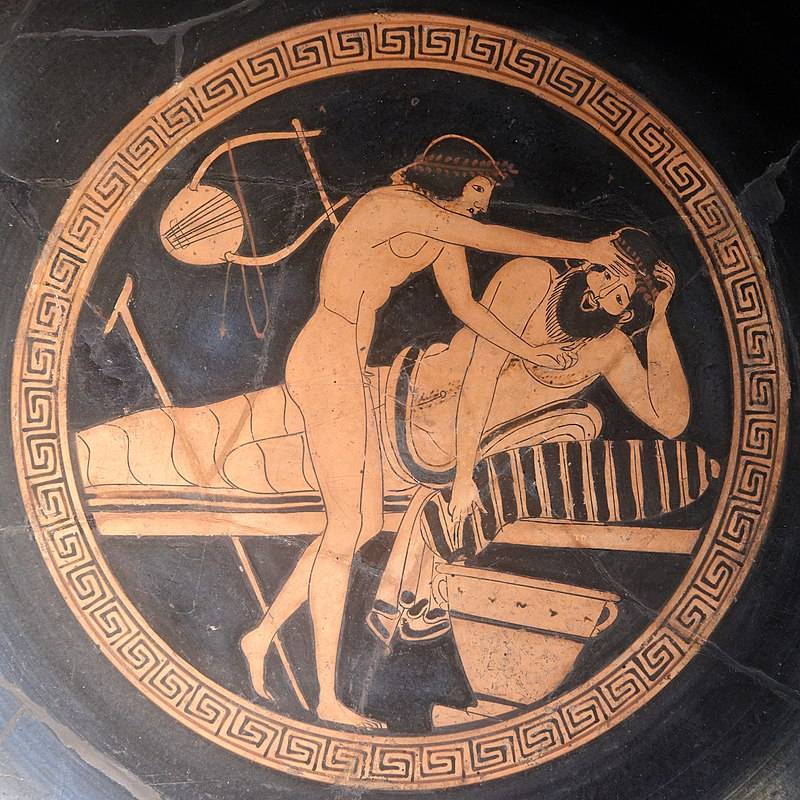
By the way, women in Greece were forbidden to drink wine everywhere except ... Sparta. It was stored in leather furs, and transported in sealed amphorae with the indication of the place and time of manufacture. This is how, by the way, “vintage wines” appeared.
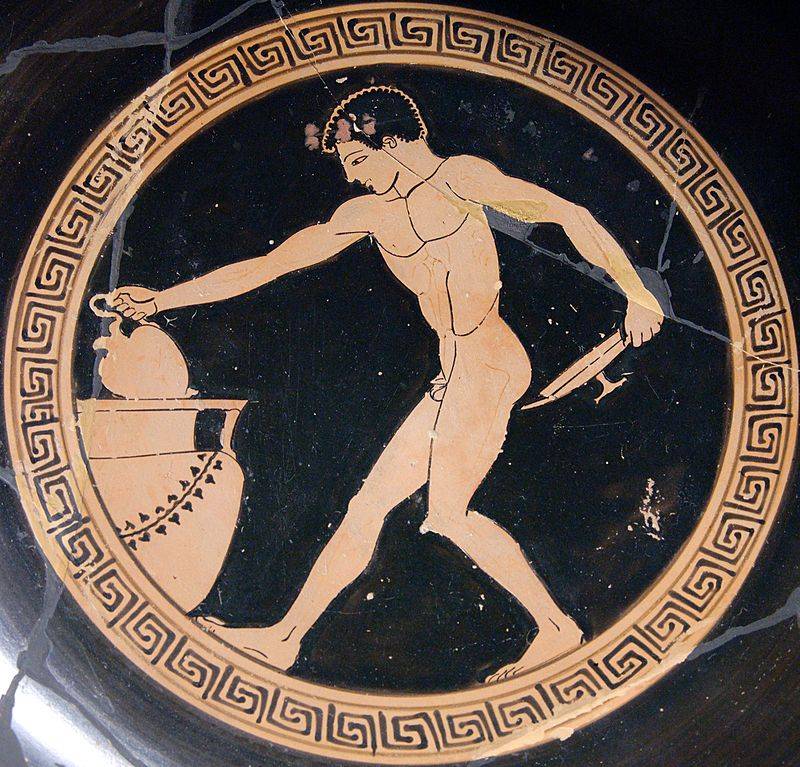
Interestingly, until the Roman conquest, the Greeks valued food primarily for the benefit and simplicity. And that is precisely why the Persians were considered barbarians, because their cooking was very difficult, and they drank wine undiluted.
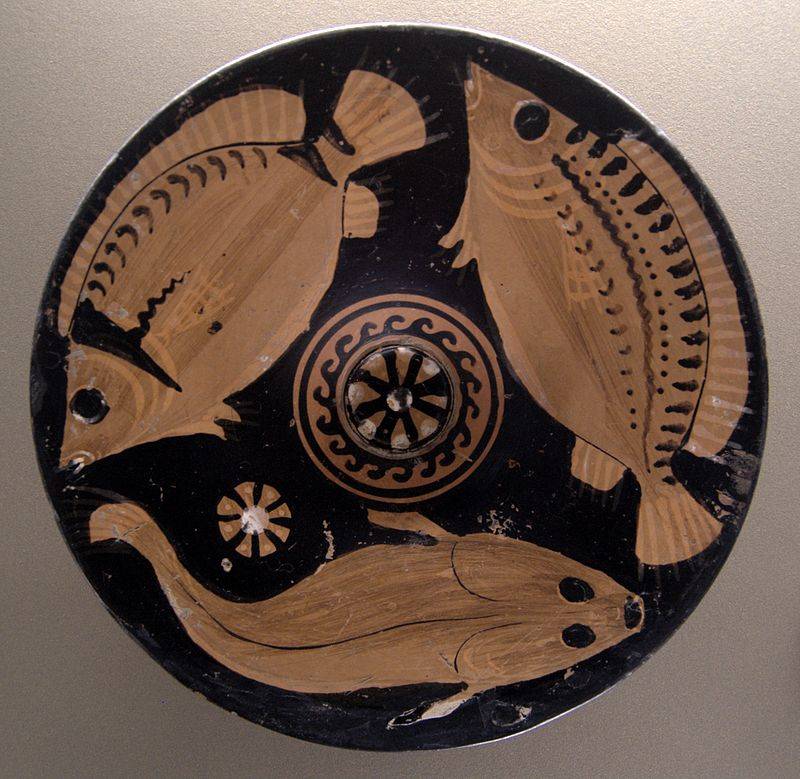
In Greek city-states, women traditionally prepared food. But male cooks existed at first only in the city of Sybaris, which was not approved by most of the Greeks. Gluttony was condemned. But vegetarianism was very popular. Thus, the philosopher and physician Empedocles (XNUMXth century BC) justified vegetarianism by belief in the transmigration of souls. After all, no one could guarantee that the animal that goes under the knife does not contain the soul of some person?
Some of the Pythagoreans also lived only on bread and water. In addition, it was forbidden to eat certain vegetables, such as beans, as well as sacred animals, such as white roosters.
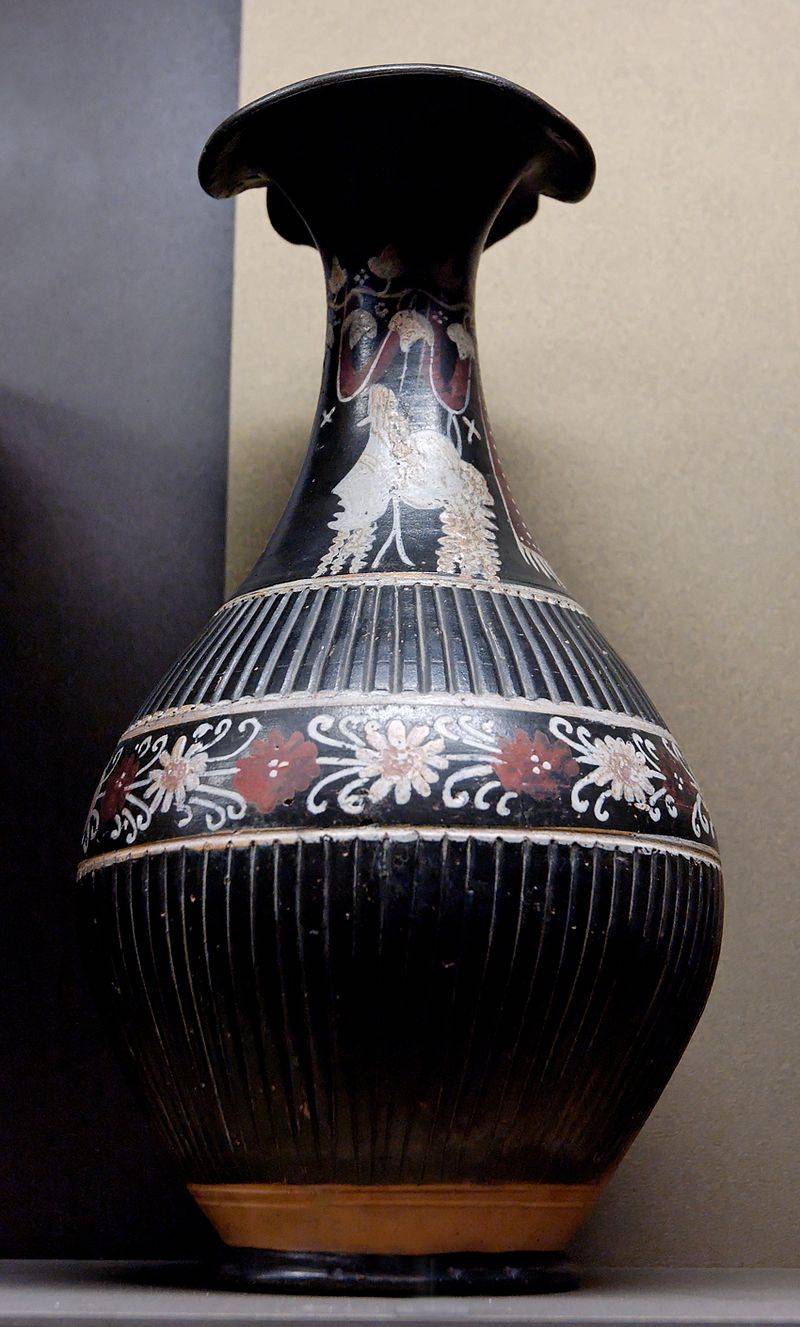
Olympic athletes also had their own diets. One was known to eat twenty pounds of meat and twenty pounds of bread every day while wrestling, and wash it down with eight quarts of wine.
In Roman times, the Greeks adopted a lot from their conquerors and gradually turned into the same gourmets, which, of course, did not benefit them, just like the Romans themselves!
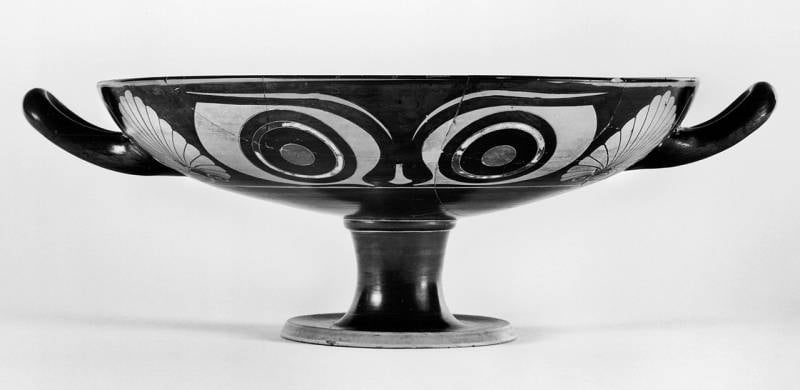
Information